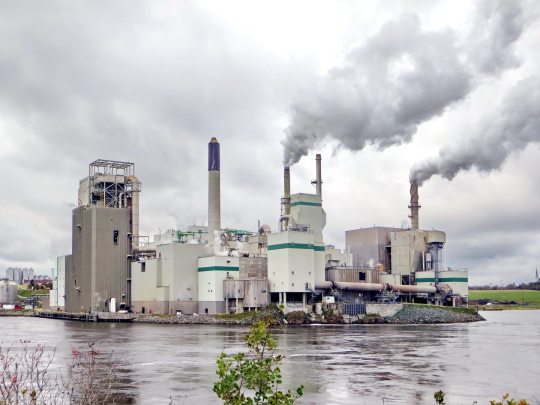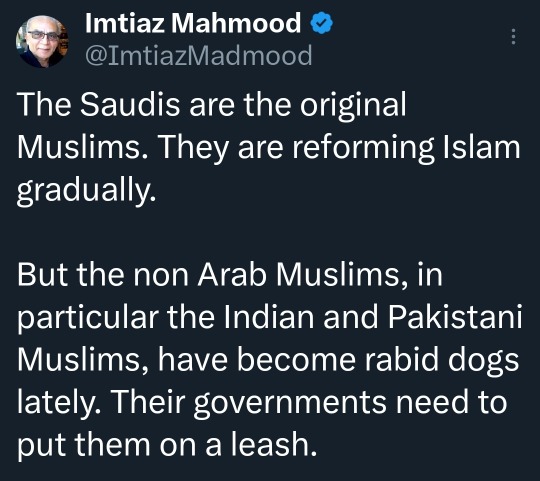#reforms
Text
Napoleon and Water
Excerpt from the book Aaron Burr in Exile: A Pariah in Paris, 1810-1811, by Jane Merrill and John Endicott
Aaron Burr lived in Paris for 15 months, and this book goes into detail about those years living under Napoleon’s rule. This part focuses on Napoleon’s water related reforms.
———
Napoleon’s fountains gave drinking water to the population, that is, children drank water, not beer. The water was free, not purchased. And the apartment would have had a separate water closet equipped with squat toilets (adopted from the Turks) and a bucket to wash it after use. Some restaurants and cafes had W.C.s, even one for ladies and one for gents. These were hooked into the sewer system that branched under each important street.
Napoleon merits points for delivering fresh water to Paris. If serving Paris with water from the d'Ourcq River by canals was not be a consummate success, Paris gained 40 new fountains, and the emperor commanded that fountains run all day (instead of a few limited hours) and that the water be free of charge.
Perhaps the most laudable of Napoleon’s policies were utilitarian city works, especially bringing clean water and sanitation to Paris. The improvements to infrastructure included new quays to prevent floods, new gutters and pavement, new aqueducts and fountains, and relocating cemeteries and slaughterhouses to the outskirts of the city. This was also a way of keeping up employment. An Austrian aristocrat in town during Napoleon’s wedding to Marie-Louise wrote his mother, in Vienna: “Nothing can give an idea of the immense projects undertaken simultaneously in Paris. The incoherence of it is incredible; one cannot imagine that the life of a single man would be enough to finish them.”
It was a tall order. Previous rulers had been aware of the problems and one big engineering initiative, a failed marvel, had been the waterworks at Marly, located on the banks of the Seine about seven miles from Paris. Louis XIV had it constructed to pump water from the river to his chateaux of Versailles and Marly. This was the machine marvel of its age, with 250 pumps that forced river water up a 500-foot rise to an aqueduct, and it was a sight Burr mentions going to see. By 1817 the “Marly machine” had deteriorated because it was made of wood, and the waterworks were abandoned.
Charles-Augustin Sainte-Beuve, the prominent 19th century literary critic, wrote that there had been “ten years of anarchy, sedition and laxity, during which no useful work had been undertaken, not a street had been cleaned, not a residence repaired nothing improved or cleansed.” Postrevolutionary Paris was at a nadir in terms of both the inadequate, disease-ridden water supply and the filthy streets, which were basically open sewers, deep with black mud and refuse.
“Napoleon,” writes Alistair Horne, “was obsessed by the water of Paris, and everything to do with it.”
Parisians had mostly been getting their water directly from the Seine or lining up at the scant pay fountains. In 1806, nineteen new wells for fountains were dug that flowed day and night and were free. Napoleon had a canal built 60 miles from the River Ourcq, ordering 500 men to dig it, while still a consul in 1801. It brought water to the Bassin de la Villette, opening in 1808. Some doubted the wisdom of having such an abundance of water—an oriental luxury that might incur moral decay. Now the supply of water for firefighting was also much improved. The canal had light boats, as Napoleon tried to make back some of the huge expenditure by licensing navigation, and a circular aqueduct from which underground conduits went to the central city. In 1810, there were still many water porters wheeling barrels through the city.
Now Napoleon attacked the problem of the Seine as a catchall for pollution. Parisians were so used to it that men swam naked in the river and a contemporary guidebook advised merely that the water of the Seine had no ill effects on foreigners so long as they drank it mixed with wine or a drop of vinegar. Thus houses on bridges were demolished and an immense push began to clean and modernize the city sewers.
As this book is about Aaron Burr, here is section about Burr taking inspiration by a new water related invention during his time in Paris:
Remarkably for someone who was very aware of his health, he never complained of the water. He did, however, take an interest in an invention to make it easier to dig a well. When the inventor of a process to make vinegar from the sap of any tree was not in his shop, Burr and a friend, “Crede”, went to see another invention: “We went then to see Mons. Cagniard, and his new invention of raising water and performing any mechanical operation. His apparatus is a screw of Archimedes turned the reverse, air, water, and quick silver. Cagniard was abroad; but we saw a model, and worked it, and got the report of a committee of the Institute on the subject. If the thing performs what is said I will apply it to give water to Charleston.”
[Bold italics for quotations by me]
#Aaron Burr in Exile: A Pariah in Paris 1810-1811#Aaron Burr#Jane Merrill#John Endicott#napoleon#napoleonic era#napoleonic#napoleon bonaparte#first french empire#french empire#19th century#france#history#Paris#french history#water#water history#Napoleon’s reforms#social reforms#social history#reforms#napoleonic reforms
100 notes
·
View notes
Quote
In so far as it is an institution intended to achieve, for the benefit of the greatest number, the social reforms to which landed suffrage is opposed, universal suffrage is powerless; especially if it pretends to legislate or govern directly. For, until the social reforms are accomplished, the greatest number is of necessity the least enlightened, and consequently the least capable of understanding and effecting reforms.
Pierre-Joseph Proudhon, What is Property?
#philosophy#quotes#Pierre-Joseph Proudhon#What is Property?#democracy#voting#education#awareness#reforms#progress#politics
42 notes
·
View notes
Note
What could Egg have done to better institutionalize his pro-smallfolk reforms? As in, what measures could he have taken to prevent at least some of them from being roled back by his sucessors (and Tywin)?
Well, it's kind of hard to speak to that with any degree of specificity when we don't know what his "reforms and .. rights and protections" included:
what kind of reforms were they (legal, land tenure, something else?)
what kinds of rights did they include (medieval law has a lot of different kinds of rights, for example),
what kind of protections are we talking about (protection from feudal incidents, or from corvée labor, or from the lord's monopolies)?
Because there might well be different legal or political strategies involved in each case. In some cases a royal proclamation would work, in other cases perhaps an inclusion in an update of the legal code would be a better strategy, in yet another case a charter with no defined experation might be the way to go, etc.
As to your second question, I think the biggest thing he could have done was to do a better job raising his kids, because as his many woes involving their marriage choices and abdication crises demonstrates, he didn't do a very good job either getting them to obey him or share his political project.
While I've written before about the advantage of (hereditary) monarchy in that political succession is relatively stable and predictable, one of the real downsides of (hereditary) monarchy is that, because so much of public policy is dependent on the will of the monarch, you can get very sharp reversals of policy when the son disagrees with the father, and those reversals last more than just a fixed term - they last a tifetime or more.
40 notes
·
View notes
Text
Jedi Order Reforms
To make my feelings regarding Jedi Order reformations perfectly clear:
There are several (and in Legends, many) reforms that I think would be nice to see for the benefit of the Jedi and their everyday life. A good example of such reforms can be seen in blue sunshine's Desert Storm stories.
But there is only one (1) reform that would have really saved the Jedi from Sidious: pack up everything and run like hell. That was not an option for several reasons, the most important being that it would have been unconscionable (and, of course, that they had no reason to do so).
3 notes
·
View notes
Text
Not socialist in a “I won’t have to work” type of way but socialist in a “I’ll still be working but I won’t be worried I won’t make the rent” type of way. In a “billions won’t be hoarded by one person” type of way. In a “janitors, fast-food workers, child care workers, preschool teachers, hotel clerks, personal care and home health aides, and grocery store cashiers, will live comfortably” type of way. In a “the sick and elderly will be cared for” type of way. In a “no child should work” type of way.
#socialist#socialism#communism#anti capitalism#the belief that we won’t work under capitalism genuinely makes me so mad#like#you realize the goal of social reform is to abolish imperialism right?#there won’t be good just showing up out of nowhere without slavery and/or imperialism
86K notes
·
View notes
Text

Scripture of the Day—March 28, 2024
Josiah, the Child King and His Reforms
Part 3 of 3 from the Bible’s King James ER Version
UPON HEARING PROPHETESS HULDA’S PREDICTIONS—YOUNG KING JOSIAH MAKES MORE REFORMS:
2nd Chronicles 34:29-33 - Then the king sent and gathered together all the elders of Judah and Jerusalem,
And the king went up into the house of the LORD, and all the men of Judah, and the inhabitants of Jerusalem, and the priests, and the Levites, and all the people, great and small; and HE READ IN THEIR EARS ALL THE WORDS OF THE BOOK OF THE COVENANT THT WAS FOUND IN THE HOUSE OF THE LORD.
And the king stood in his place, and MADE A COVENANT before the LORD, to walk after the LORD, and to KEEP his commandments, and his testimonies, and his statutes, with all his heart, and with all his soul, to PERFORM the words of the covenant which are written in this book. And he CAUSED ALL THAT WERE PRESENT in Jerusalem and Benjamin TO STAND TO IT. And the inhabitants of Jerusalem did according to the covenant of God, the God of their fathers.
JOSIAH KEEPS PASSOVER IN THE 18TH YEAR OF HIS REIGN:
2Ki 23:21-26 - And the king commanded all the people, saying, Keep the passover unto the LORD your God, as it is written in the book of this covenant. Surely there was not held such a passover from the days of the judges that judged Israel, nor in all the days of the kings of Israel, nor of the kings of Judah; But in the eighteenth year of king Josiah, wherein this passover was held to the LORD in Jerusalem.
SOME OF JOSIAH’S REFORMS 2ND Kings 23:6-11:
1 And he brought out the grove from the house of the LORD, without Jerusalem, unto the brook Kidron, and burned it, and stamped it small to powder, and cast the powder thereof upon the graves of the children of the people. [the GROVES were not trees—but cubicles enclosed by curtains, wherein those who came to the temple—could adulterously worship images of the goddess Ashteroth.] And he broke down the houses of the sodomites, that were by the house of the LORD, where the women wove hangings for the grove.
2 And he brought all the priests out of the cities of Judah, and defiled the high places where the priests had burned incense, from Geba to Beersheba, and brake down the high places of the gates that were in the entering in of the gate of Joshua the governor of the city, which were on a man's left hand at the gate of the city.
3 And he defiled Tophet—that no man might make his son or his daughter to pass through the fire to Molech.
4 And he took away the HORSES [Strong’s Hebrew definition # H5483 & H6571—vehicles with rapid flight; part of a cavalry] that the kings of Judah had given to the sun [H8121 & H1053 - a prison facing the east with notched battlements (parapets at the top of a wall of a fort or castle, that has regularly spaced squared openings for shooting through)], at the entering in of the house of the LORD (this was in the suburbs, so it had to be at the entrance to a tunnel which led to the temple), by the chamber of Nathanmelech the chamberlain, which was IN THE SUBURBS, and burned the chariots of the sun with fire.
CONCLUSION - 2nd Kings 23:24-26:
Moreover the workers with familiar spirits, and the wizards, and the images, and the idols, and all the abominations that were spied in the land of Judah and in Jerusalem, did Josiah put away, that he might perform the words of the law which were written in the book that Hilkiah the priest found in the house of the LORD.
And like unto him was there no king before him, that turned to the LORD with all his heart, and with all his soul, and with all his might, according to all the law of Moses; neither after him arose there any like him.
Notwithstanding the LORD turned not from the fierceness of his great wrath, wherewith his anger was kindled against Judah, because of all the provocations that Manasseh had provoked him-with.
#King Josiah#predictions#reforms#Jerusalem#covenant#passover#groves#ashteroth#worship#horses=ships#prisons#battlements#wizards
0 notes
Text
All the best to Malaysia! God bless Malaysians!
0 notes
Text
New: Bersih 6 - Anytime the crowd can storm the streets
Street protests may resume with Bersih 6 in waiting if the government does not buckle up to press for reforms that were promised by the PKR in particular, the party of the PM Anwar Ibrahim. Bersih has warned that its sixth major demonstration is just a trigger point away and could take place within this term of government if Putrajaya does not buck up.
Social Media Links
Follow us…

View On WordPress
0 notes
Text
Police Officer Refuses to Testify, Sparks Debate on Justice System
#abandoningduties #administrationofjustice #caughtonvideo #charges #communitysafe #criminaljusticesystem #debate #difficultcircumstances #disciplinaryaction #dismissalofcases #failuretodotheirjob #Justice #personalattack #policedepartment #policeofficer #policeunion #publicsafety #reforms #roleofpolitics #Support #tension #topprosecutor #trackrecordofconvictions #undermineauthority
#Politics#abandoningduties#administrationofjustice#caughtonvideo#charges#communitysafe#criminaljusticesystem#debate#difficultcircumstances#disciplinaryaction#dismissalofcases#failuretodotheirjob#Justice#personalattack#policedepartment#policeofficer#policeunion#publicsafety#reforms#roleofpolitics#Support#tension#topprosecutor#trackrecordofconvictions#undermineauthority
0 notes
Text
Napoleon and Sewers and Sanitation
Excerpt from the book Aaron Burr in Exile: A Pariah in Paris, 1810-1811, by Jane Merrill and John Endicott
Napoleon began in 1805 to build a modern vaulted underground sewer system in Paris, following the topography of the streets. Practical changes for the better were already in place when Burr was in Paris. Sewer floors were lowered and new lines were created everywhere between 1805 and 1812, while at the same time the existing sewers were disinfected and the flow of water purified.
During the Enlightenment there was a movement for improved hygiene in France, and investigations of public health. Napoleon was a forerunner of hygiene for his armies and for Paris. In the first place he paved streets and did away with the flowing gutters in the middle of the road. Second, he wanted to give Parisians clean water. In 1802, he commissioned Pierre-Emmanuel Bruneseau as his inspector of works for the City of Paris to chart the sewer system and also keep them clean. Under Napoleon, the existing network was extended, 19 new miles of sewers were added. By 1812, vast improvements had been made.
Bruneseau died in 1819, but Baron Haussmann studied Bruneseau’s maps in the mid-century, rebuilding, constructing new gas-lit and vented sewers. The sanitation models of Paris were adopted by other cities in France and around the world.
A survey of 50 kilometers took seven years. It was dangerous as well as putrid work. While Bruneseau was hailed as an intrepid adventurer, he had difficulty all along with hiring assistants to keep up with him. Victor Hugo was Bruneseau’s friend and hailed him as an adventurer. The engineer inspired Hugo to write the portion of Les Misérables in which Jean Valjean carries Marius, wounded at the Barricades in 1832, through the sewers to safety. Hugo called the sewers “the conscience of the city” and created a whole metaphor around the sewer system: “A sewer is a cynic. It tells everything.” It wouldn’t have been possible for Jean Valjean to make his way carrying Marius through the sewers before the curage methods introduced by Bruneseau. The rushing water when gates are opened to clean the sewers with great hydraulic force, as well as the manholes and dripping pipes, are well described in the novel.
[Bold italics for quotations by me]
#napoleon#Pierre-Emmanuel Bruneseau#victor Hugo#Hugo#Les mis#Les Misérables#Bruneseau#napoleonic era#napoleon bonaparte#Aaron Burr#Burr#Aaron Burr in Exile: A Pariah in Paris 1810-1811#Paris#France#sewers#french history#history#first french empire#french empire#19th century#napoleonic#Baron Haussmann#Haussmann#napoleonic reforms#reforms#Napoleon’s reforms
45 notes
·
View notes
Text
Industry reacts to gas power plans and electricity market reforms
UK Energy Secretary Claire Coutinho has set out plans to build new gas power stations to avoid what she described as the “genuine prospect of blackouts”.
In a speech today, Ms Coutinho made the case for investing in unabated gas power into the 2030s to maintain electricity supplies when renewables are unable to meet demand due to weather conditions.
“Without gas backing up renewables, we face the…

View On WordPress
0 notes
Text

The stupid converted Muslims in India and Pakistan start protesting when Saudi/UAE allows cinema halls to operate in their country.
The stupid converted Muslims in India and Pakistan also protest when Saudi/UAE allows women to drive cars or travel alone.
1 note
·
View note
Text
So I've had to have this conversation a lot with people, so i'm writing it out here. Reformism, in politics is a lot like palliative care. Is that morphine going to cure someone's broken leg, no it isn't, but that doesn't mean you should just leave them in agonising pain while you reset the leg. In the same way reformist measures to lets say improve working conditions, or provide housing for the poor, or provide universal healthcare, probably aren't going to solve the underlying structural causes of injustice under capitalism, and yes those underlying structural causes are important and need to be addressed. But they sure as hell will make a lot of people's lives better, will ease an incredible amount of human suffering, and to say that doesn't matter and isn't worth fighting for is just as fundamentally immoral as denying someone painkillers because it won't fix their injury.
0 notes
Text
Revitalizing India's Cities: Giving Them Their Due - A Call For Financial Reforms - IMPRI Impact And Policy Research Institute
Tikender Singh Panwar
India’s cities and towns are starting to crumble under the weight of the unjust recommendations by previous finance commissions. Will the XVI finance commission be sensitive towards city governments?
The XVI Finance Commission (FC) has been constituted and we are in the middle of the XV FC recommendations. The financial architecture woven around cities under the XV FC has…
View On WordPress
#call#Cities#Due#Financial#Giving#impact#impri#India039s#Institute#policy#Reforms#research#Revitalizing
0 notes
Text

Challenge #04031-K013: The Most Unlikely Rescue
It's snowing heavily and windy. But it's warm here, a fire is going, and I am very relaxed. -- Anon Guest
The howling of the wind, and perhaps some wolves, reached me first. Woke me up. Startled me into at least opening my eyes.
White.
It was deadly dangerous to fall asleep in snow. I had to get up. Had to find or make a shelter. Had to get my--
[Check the source for the rest of the story]
1 note
·
View note